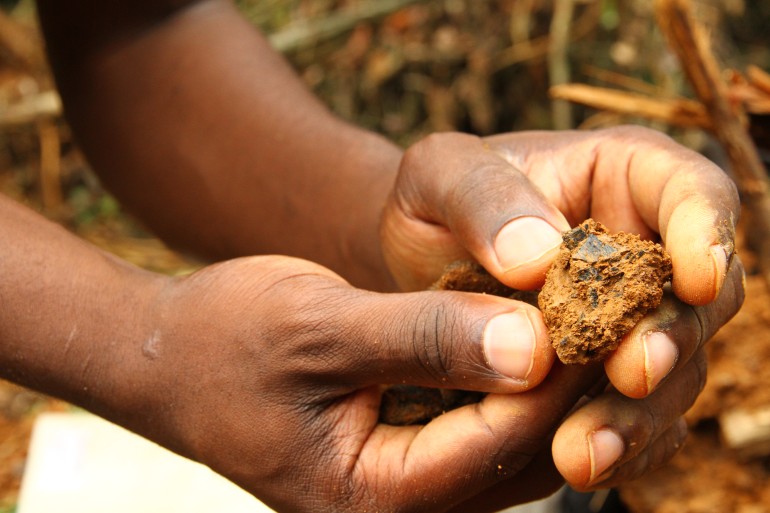

16.09.2022
Research conducted by Gembloux Agro-Bio Tech and the University of Science and Technology of Masuku (USTM-Gabon) in the forests of southeastern Gabon is examining the origin of okan populations to better understand its ecology.

Romaric Ndonda Makemba, a doctoral student at Gembloux Agro-Bio Tech (University of Liège) and the USTM (Gabon), is conducting his doctoral research in the forests of southeastern Gabon. His objective: to better understand the ecology of okan in order to set up an adapted regeneration strategy. This species of great importance, both for local populations and for the timber trade, suffers from a deficit of natural regeneration in evergreen forests and its ecology is little known.
The PhD student and his collaborators have just published a new scientific paper in the journal Forest Ecology and Management. In this study, they examine the age of a target population of okan in an FSC-certified forest concession (CEB-Precious Woods) using diametric growth data from the Dynafac network. They then evaluate and compare the influence of past anthropogenic and edaphic factors on the distribution of this population. More specifically, they looked for signs of human presence in the soil (charcoal and pottery shards) and carried out chemical fertility analyses of the soils (40 pedo-anthraco-archeological excavations). Carbon-14 dating of the charcoal found was carried out.
The researchers identified the preponderant role of past agricultural practices, as well as that of the chemical fertility of the soil (in phosphorus, potassium and nitrogen) on the establishment of this species. Also, the average age of the tree population studied (about a century) coincides with the last period of human occupation in the study area (age obtained from carbon-14 dating of charcoal).
These results demonstrate once again the role played by past human populations and soil fertility on the current composition of the forests. They also call upon forest managers and legislators to implement silvicultural techniques adapted to the maintenance of tree populations exploited for their timber.